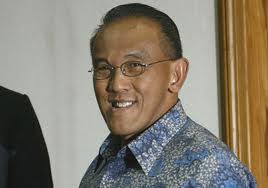The Koreans might have done so, but the strategy requires a level of sustained administrative competence, single-minded toughness and luck which are rare. Just as important, there are alternative development strategies, less demanding of skilled policy-making and administrative competence. The growth outcome won’t match Korea’s, but will be more feasible for countries like Indonesia (which Studwell sees as a development failure).
Let’s go through the three elements of the Studwell strategy. The first stage requires land reform and a boost to agricultural productivity.
It’s an old and sensible idea that agriculture has to provide the investable surplus which will propel the rest of the economy along the path of development. Fifty years ago, Clifford Geertz (Agricultural Involution) despaired about Indonesia’s failure to follow the example of Japan, which shifted surplus agricultural labour into factory work to create a modern urban/manufacturing sector. This failure would lead the excess population to atrophy, farming progressively more Lilliputian plots.
But things turned out better. With the average size of farms on Java around half a hectare, the opportunity for land reform couldn’t play the key role that Studwell advocates. But Soeharto, with his roots in agriculture, gave rice production high priority (extension services, high-yield seeds, fertilizer, pesticides and attractive terms-of-trade between agriculture and urban consumers via an active price stabilisation authority). Not very free-market, but big yield increases and self-sufficiency were speedily achieved.
What about a vigorous industry policy, the second Studwell requirement? Despite inheriting the usual disaster story of failed prestige projects from Sukarno, Soeharto was ready to have a go at ‘picking winners’.
Cement, fertilizer, textiles, paper production, food processing and petroleum refining all fitted Indonesia’s comparative advantage and made sense. Others were less defensible: Krakatau Steel,Tommy Soeharto’s national car and Ibnu Sutowo’s tankers. Habibie‘s IPTN aeroplane fits the Studwell strategy and might have succeeded if it hadn’t been stopped by the Asian crisis: ex-aeronautical engineer Habibie was well-qualified to lead this project, plane construction is quite labour-intensive (all those rivets) and the Indonesian archipelago needs lots of them (one airline recently ordered several hundred in one hit).
Whether IPTN would have succeeded is not the issue here: the point is that Indonesia, for better or worse, did try the sort of hot-house industrialisation Studwell advocates, and the IMF wasn’t able to stop this, at least until the 1997 crisis. Planning retained a central role, just as Studwell wants, and state-owned enterprises did the government’s bidding. Where Indonesia had comparative advantage, this often worked out well, and where the industry didn’t suit Indonesia’s attributes, generally it was a failure.
Indonesia’s development experience doesn’t fit the Studwell formula. Java’s rice production has done well without relying on his key element of land reform, and industry policy based on domestic entrepreneurship has been tried without much success.
Governments attempting to steer the process of development need effective administrative capacity; in a follow-up post, I’ll expand on the idea that market failure is common enough, but so too is government failure.
…
Joe Studwell’s response:
1. I doubt, contra Mr Grenville, that there is some arbitrary minimum land holding that makes land reform unworkable. If this were the case, then the micro-plots of a few tens of square metres championed by groups like Landesa would make no sense, when historical evidence around the world shows that privately-held micro-plots produce very high yields.
I am presently up my hill in Italy, and using a very slow Internet connection, and so cannot readily check the average Javan landholding. I assume Mr Grenville means that the average Javan landholding is half a hectare now, and would therefore be less after land reform. (The average land holding in most parts of China, Japan, ROK, and Taiwan after land reform was roughly half a hectare.) If my understanding is correct, my response is that Java has some of the best soil and climate conditions in the whole of east Asia, and so even smaller plots should be more than viable — if indeed size matters at all in a downward direction, a question which I think deserves real scrutiny.
Mr Grenville is correct that yields on Java are high by south-east Asian standards. The rice yield is over five tonnes per hectare. However this is still less than the average in north-east Asia. Given its soil and climate, it would not surprise me if north-east Asian style household farming could produce as much as 9 tonnes per hectare on Java — about as high as has been managed anywhere, because the growing conditions are so favourable.
Mr Grenville is correct that Suharto invested heavily (if patchily) in agricultural extension services and (eventually) used minimum price guarantees to promote higher yields. However he is wrong to say that self-sufficiency was achieved ‘quickly’. Rice self-sufficiency was not achieved until the mid-1980s, 40 years after independence, and wheat self-sufficiency never was. So I maintain my position that Indonesia is a real relative failure in agriculture.
2. On industry, much of my criticism of policy in south-east Asia focuses on politicians’ efforts to ‘pick winners’ rather than run industrial policy that periodically culls losers. I also talk at length about the need for ‘export discipline’ to anchor industrial policy. And I avoid traditional discussions of what is or is not a society’s comparative advantage because, to my mind, development is about changing (within reason) your comparative advantage. Economic development is about investing in a learning process in order to reap higher future returns.
Mr Grenville’s points about industry in Indonesia therefore seem to me to be based on a misreading, or mere scanning, of How Asia Works. He highlights industrial projects that were picked as ‘winners’, were not subjected to sufficient competition or pressure to export, and which consequently produced a poor return on industrial policy investment. His observations are essentially supportive of the policy requisites I highlight.
The one thing I think is truly misplaced in Mr Grenville’s comments is the argument in the third paragraph that, essentially, Indonesians are politically and administratively ‘not up to’ the task of accelerated economic development, particularly compared to people like the Koreans. Is this true? In 1945, South Korea was the rural backwater of a brutally colonised state in which Koreans had been allowed to play perhaps the most restricted administrative and economic role in any east Asian colony. I cannot see that the Koreans had much political, administrative or educational capital. Elite Indonesians, by contrast, held senior civil service positions under the Dutch, could win scholarships to study in Europe, and had much greater (formal) political, administrative and educational resources. The difference was not the endowments, but the change politicians wrought over 60 years of independent government.
Why was the peasant Park Chung Hee able to achieve so much more than the superbly educated Sukarno? Probably, I think, because Park focused on the basics and got them right.


